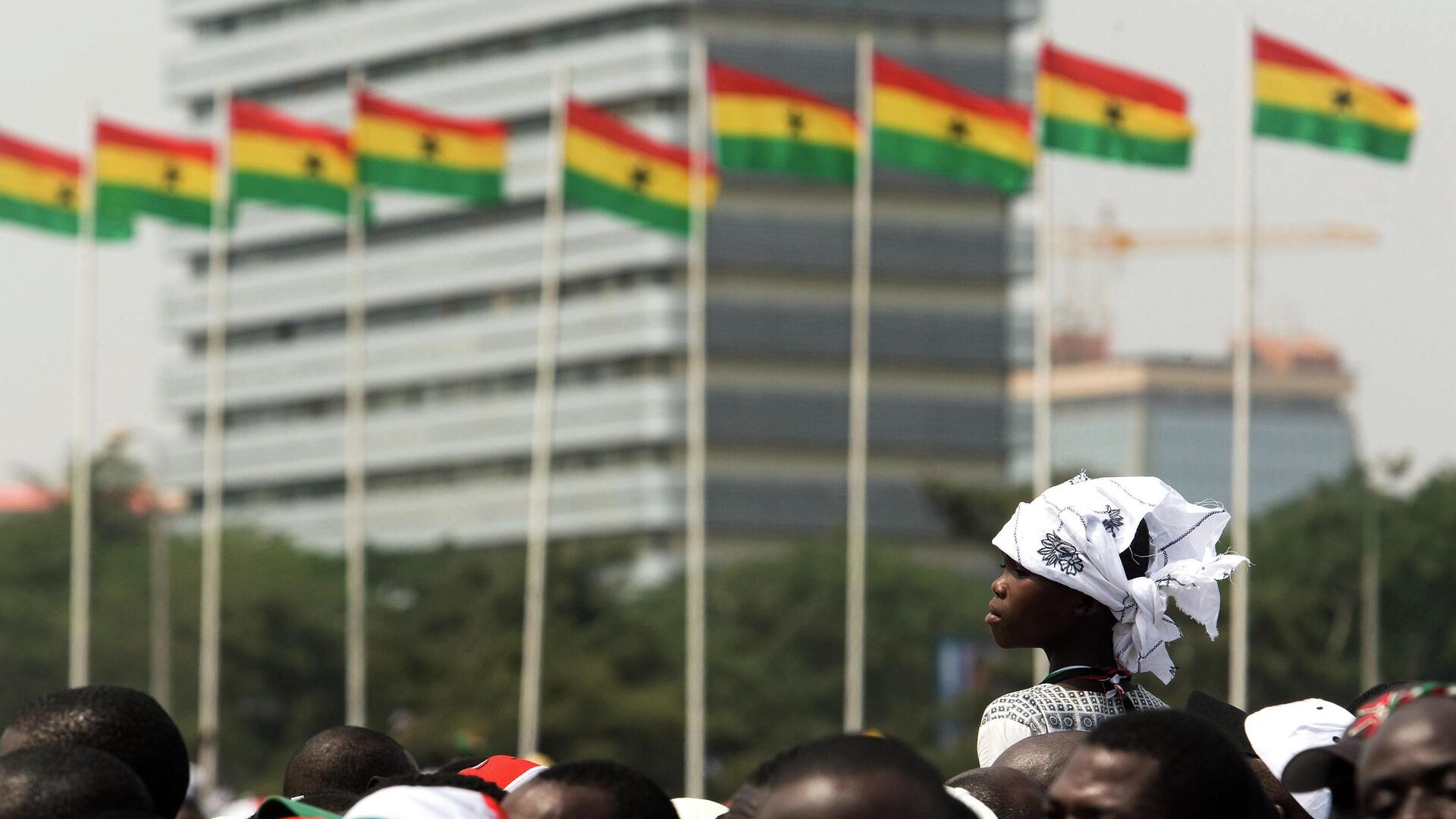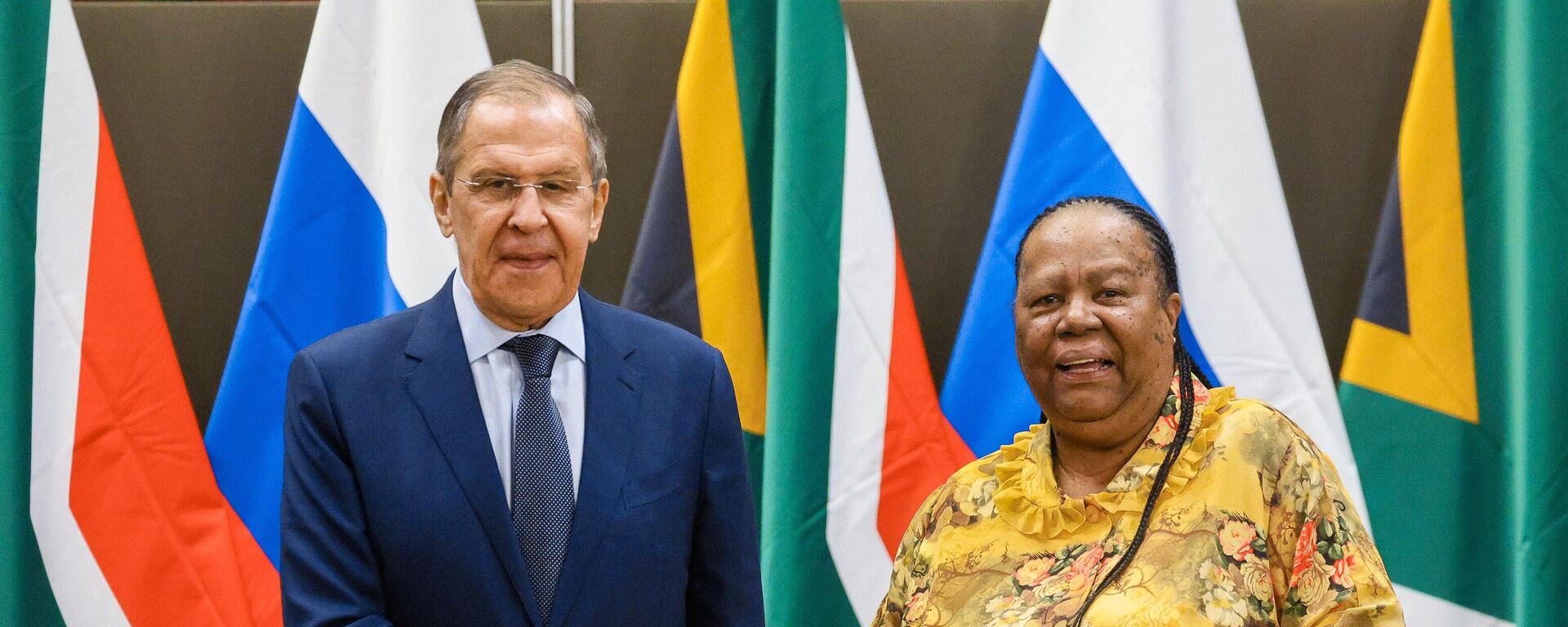https://en.sputniknews.africa/20230714/ghana-aims-to-introduce-nuclear-power-by-2030-for-diverse-energy-mix-1060536497.html
Ghana Aims to Introduce Nuclear Power by 2030 for Diverse Energy Mix
Ghana Aims to Introduce Nuclear Power by 2030 for Diverse Energy Mix
Sputnik Africa
In 2017, the International Atomic Energy Agency conducted a mission to review Ghana's infrastructure, as preparations were underway to select international... 14.07.2023, Sputnik Africa
2023-07-14T18:40+0200
2023-07-14T18:40+0200
2023-07-14T18:40+0200
sub-saharan africa
west africa
ghana
nuclear power plant (npp)
nuclear fuel
energy
renewable energy
electricity
https://cdn1.img.sputniknews.africa/img/07e7/07/0e/1060537054_0:0:3000:1688_1920x0_80_0_0_8c66e4a5402c1984609579a5b0c07562.jpg
Ghana is on a path to introduce its inaugural nuclear power plants (NPP) by 2030, aiming to diversify its energy sources with more cost-effective and sustainable electricity production, as shared by the country's nuclear regulatory body.The West African nation is actively engaged in discussions with international vendors and partners to assist in the development of the NPP, following agreements on capacity and financing parameters, according to Nii Kwashie Allotey, Director General of Ghana's Nuclear Regulatory Authority.Ghana has established the company Nuclear Power Ghana with the purpose of constructing and operating the country's first nuclear facility by 2030, said Allotey.The company has already approached several vendors specializing in the construction and sale of NPPs, and a decision on a suitable partner for the project is expected to be made in due course.Allotey emphasizes that nuclear power has the potential to provide Ghana with a carbon-free, cost-effective, and sustainable source of electricity. Currently, the country heavily relies on hydroelectric power, as well as oil and gas. Should Ghana opt for a 1,000-megawatt plant, the estimated investment required could reach up to $5 billion.Several countries, including Russia, a major exporter of nuclear energy, are providing regulatory expertise to assist Ghana in this initiative.Russia is actively establishing partnerships and exploring nuclear energy collaborations with African countries. Rosatom, the state-owned Russian nuclear company, is already engaged with over 15 sub-Saharan African countries, such as Zambia, Kenya, South Africa, Egypt, and others.It is worth noting that in 2015, Russia's Rosatom signed a Memorandum of Understanding with Ghana to develop a 1,200-megawatt reactor. However, substantial upgrades to Ghana's energy grid would be necessary to accommodate this capacity, considering that the country's total energy production at the time stood at only 2,831 megawatts.In 2017, the International Atomic Energy Agency (IAEA) conducted an assessment of Ghana's infrastructure as preparations were made to select international vendors. A follow-up mission was then carried out in 2019, which found that Ghana had made significant progress and was close to being ready to discuss options with international partners.In 2022, the Ghanaian government approved a plan to construct a 1 gigawatt nuclear power plant, with vendors invited from the USA, Russia, Canada, and South Korea. The expected timeline envisions signing contracts between 2024 and 2026, pushing Ghana closer to its nuclear aspirations in the coming years.
https://en.sputniknews.africa/20230503/russia-ready-to-help-ease-south-african-energy-crisis-consul-general-says-1059013958.html
west africa
ghana
Sputnik Africa
feedback@sputniknews.com
+74956456601
MIA „Rossiya Segodnya“
2023
Muhammad Nooh Osman
https://cdn1.img.sputniknews.africa/img/07e7/04/0a/1058467512_0:0:1280:1280_100x100_80_0_0_ec723833bcbfcaed2e21952965ad99e4.jpg
Muhammad Nooh Osman
https://cdn1.img.sputniknews.africa/img/07e7/04/0a/1058467512_0:0:1280:1280_100x100_80_0_0_ec723833bcbfcaed2e21952965ad99e4.jpg
News
en_EN
Sputnik Africa
feedback@sputniknews.com
+74956456601
MIA „Rossiya Segodnya“
Sputnik Africa
feedback@sputniknews.com
+74956456601
MIA „Rossiya Segodnya“
Muhammad Nooh Osman
https://cdn1.img.sputniknews.africa/img/07e7/04/0a/1058467512_0:0:1280:1280_100x100_80_0_0_ec723833bcbfcaed2e21952965ad99e4.jpg
west africa, ghana, nuclear power plant (npp), nuclear fuel, energy, renewable energy , electricity
west africa, ghana, nuclear power plant (npp), nuclear fuel, energy, renewable energy , electricity
Ghana Aims to Introduce Nuclear Power by 2030 for Diverse Energy Mix
Muhammad Nooh Osman
Writer/Editor
In 2017, the International Atomic Energy Agency conducted a mission to review Ghana's infrastructure, as preparations were underway to select international vendors. A follow-up mission in 2019 concluded that significant progress had been achieved, and Ghana would soon be ready to discuss its options with international partners.
Ghana is on a path to introduce its inaugural nuclear power plants (NPP) by 2030, aiming to diversify its
energy sources with more cost-effective and sustainable electricity production, as shared by the country's nuclear regulatory body.
The West African nation is actively engaged in discussions with international vendors and partners to assist in the development of the NPP, following agreements on capacity and financing parameters, according to Nii Kwashie Allotey, Director General of Ghana's Nuclear Regulatory Authority.
Ghana has established the company Nuclear Power Ghana with the purpose of constructing and operating the country's first nuclear facility by 2030, said Allotey.
The company has already approached several vendors specializing in the construction and sale of NPPs, and a decision on a suitable partner for the project is expected to be made in due course.
Allotey emphasizes that nuclear power has the potential to provide Ghana with a carbon-free, cost-effective, and sustainable source of electricity. Currently, the country heavily relies on hydroelectric power, as well as
oil and gas. Should Ghana opt for a 1,000-megawatt plant, the estimated investment required could reach up to $5 billion.
As a regulatory authority, "We are continually strengthening our capacity, competences and structures to be able to provide oversight and ensure that the plant is constructed, designed and operated safely," stated Allotey.
Several countries, including Russia, a major exporter of nuclear energy, are providing regulatory expertise to assist Ghana in this initiative.
Russia is actively establishing partnerships and exploring nuclear energy
collaborations with African countries. Rosatom, the state-owned Russian nuclear company, is already engaged with over 15 sub-Saharan African countries, such as Zambia, Kenya, South Africa, Egypt, and others.
It is worth noting that in 2015, Russia's Rosatom signed a Memorandum of Understanding with Ghana to develop a 1,200-megawatt reactor. However, substantial upgrades to Ghana's energy grid would be necessary to accommodate this capacity, considering that the country's total energy production at the time stood at only 2,831 megawatts.
In 2017, the International Atomic Energy Agency (IAEA) conducted an assessment of Ghana's infrastructure as preparations were made to select international vendors. A follow-up mission was then carried out in 2019, which found that Ghana had made significant progress and was close to being ready to discuss options with international partners.
In
2022, the Ghanaian government approved a plan to construct a 1 gigawatt nuclear power plant, with vendors invited from the USA, Russia, Canada, and South Korea. The expected timeline envisions signing contracts between 2024 and 2026, pushing Ghana closer to its nuclear aspirations in the coming years.



